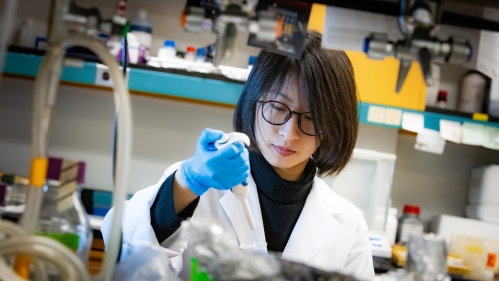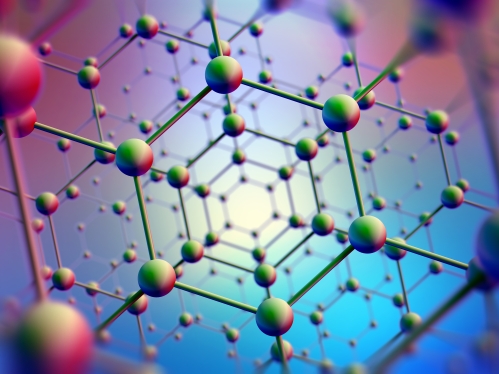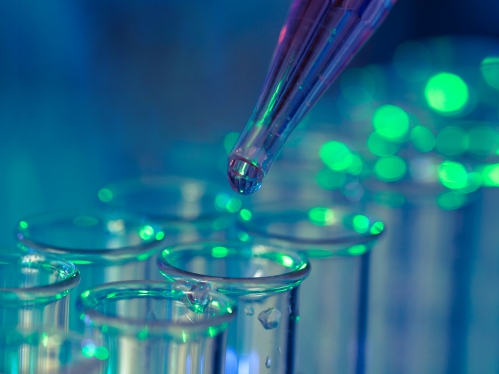
Chemical and Biochemical Research
Research Areas of Focus
The Department of Chemical and Biochemical Engineering generates research in several areas that involve the study of biological processes, materials structure, and manufacturing within the parameters of chemistry, biology, physics, and engineering.
Biotechnology and Biomolecular Engineering
Our biomolecular engineering research is helping to address some of the world’s most critical challenges by enabling advances in healthcare, food, and the environment. They are using advanced, molecular-level methods, including protein, glycan and metabolic engineering along with synthetic biology and data science to develop new medicines, materials, and therapies.
Faculty
Ioannis (Yannis) Androulakis, Shishir Chundawat, Gregory Dignon, Meenakshi Dutt, Ashley Guo, Charles Roth, Benjamin Schuster, Haoran Zhang

Pharmaceutical Engineering
The chemical engineering department at Rutgers has been at the forefront of the pharmaceutical engineering field for three decades, developing and applying cutting-edge engineering methodologies for the design and optimization of pharmaceutical products and processes. Our work spans from fundamental understanding of new materials, formulations, and technologies for drug delivery to pilot scale design, control, and automation of continuous manufacturing processes for pharmaceuticals and biopharmaceuticals.
Faculty
Shishir Chundawat, Gregory Dignon, Benjamin Glasser, Fernando Muzzio, Rohit Ramachandran, Charles Roth, Benjamin Schuster, James Scicolone, Ravendra Singh, Silvina Tomassone, George Tsilomelekis, Haoran Zhang

Clean Energy and Sustainability
Chemical engineers have a critical role to play in addressing climate change and providing sustainable sources of clean energy, food, and water for a growing world. Rutgers chemical engineers are developing new materials and technologies to enable renewable and alternative energy sources, optimizing systems to reduce carbon emissions, and devising novel method to upcycle waste and remove contaminants from water.
Faculty
Tewodros (Teddy) Asefa, Fuat Celik, Shishir Chundawat, Nicholas Corrente, Gregory Dignon, Ashley Guo, Diane Hildebrandt, Alexander Neimark, Nina Shapley, George Tsilomelekis, Haoran Zhang

Soft Matter and Advanced Materials
Rutgers CBE researchers work on a wide range of advanced materials and soft matter, designing new materials at the molecular level that offer needed capabilities for applications spanning from biomedicine and biotechnology, alternative and renewable energy, sustainability, nanoelectronics, sensing, and imaging, to personal care, pharmaceuticals and biosafety.
Faculty
Tewodros (Teddy) Asefa, Fuat Celik, Shishir Chundawat, Nicholas Corrente, Gregory Dignon, Meenakshi Dutt, Ashley Guo, Alexander Neimark, Benjamin Schuster, Nina Shapley, Silvina Tomassone, George Tsilomelekis

Computing and Data Science
CBE researchers apply computational methods to problems across all length scales, including quantum mechanical modeling of catalytic reactions, bio-inspired and data-driven materials design, interfacial behavior of nanomaterials, and design and optimization of complex systems. Rutgers provides a rich environment for computational research via cross-disciplinary collaborations and high performance computing resources.
Faculty
Ioannis (Yannis) Androulakis, Fuat Celik, Nicholas Corrente, Gregory Dignon, Meenakshi Dutt, Benjamin Glasser, Ashley Guo, Diane Hildebrandt, Alexander Neimark, Rohit Ramachandran, Silvina Tomassone

Student Research Opportunities
The Department of Chemical and Biochemical Engineering gives students the opportunity to engage in cutting-edge research under the guidance and mentorship of faculty advisors.
Research and Innovation News